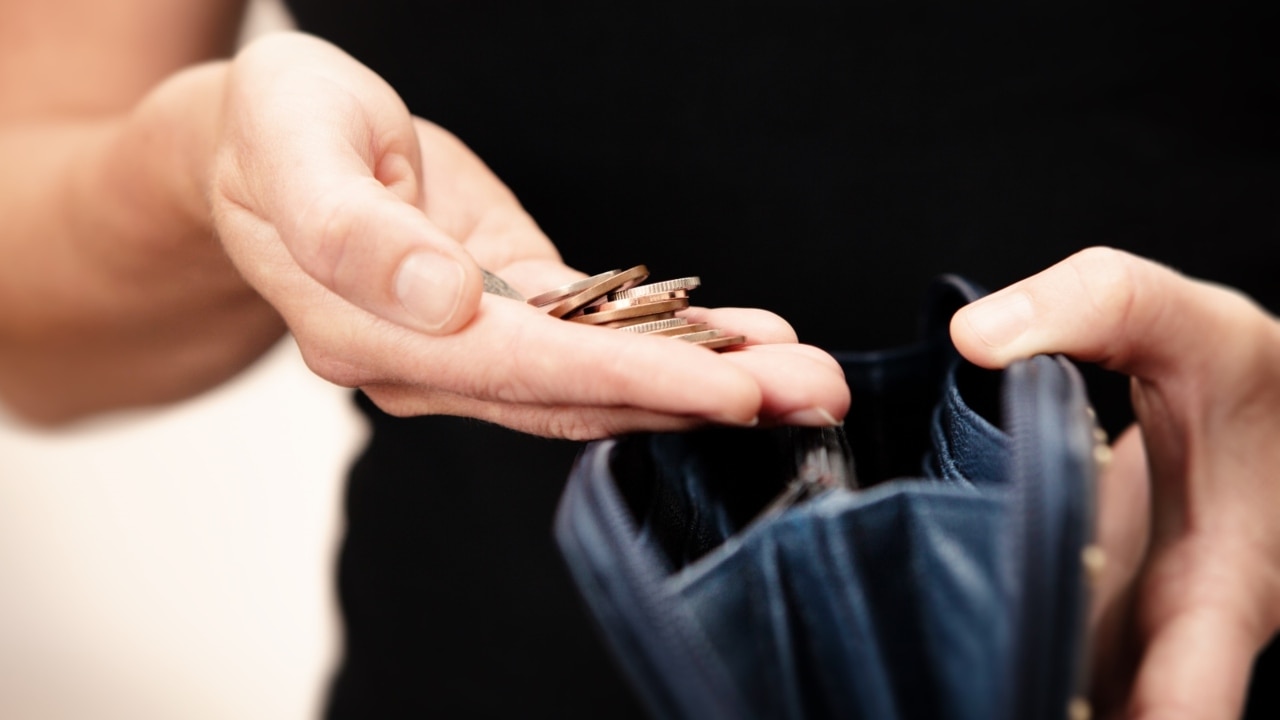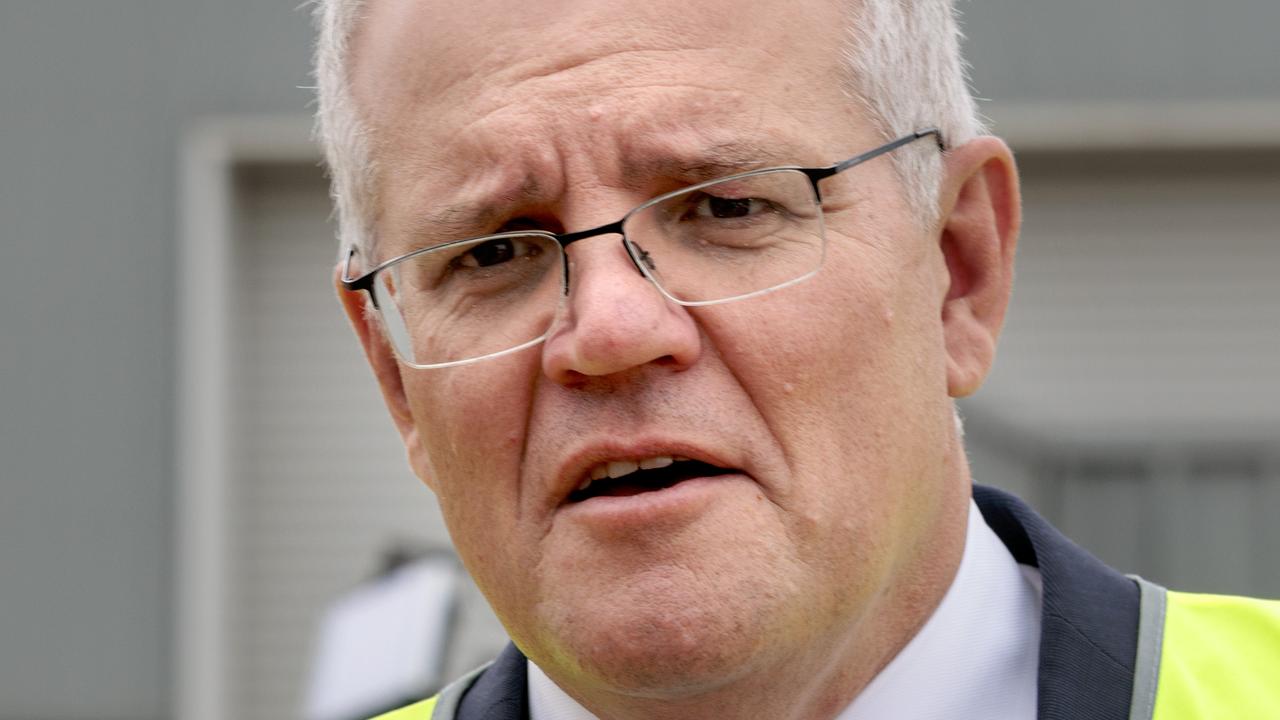Jessica applies for 50 jobs a month and battles to survive on Newstart, with nothing left after bills and rent
When she’s not applying for jobs and going to interviews, Jessica is battling to survive. After bills and rent, she has virtually no money left.
Jessica will apply for up to 50 jobs over the course of May, as she does every month.
The 22-year-old will juggle that gruelling search with a terrifying battle to survive on a paltry sum that leaves her with virtually nothing after the cost of rent, bills and groceries.
“It’s so hard to make ends meet,” Jessica told news.com.au. “No matter what I do, I can’t seem to get ahead.”
She shares a unit in Frankston in Melbourne’s south with her grandmother and the pair splits expenses like a regular share house.
Jessica, who hopes to start study at TAFE in July and eventually become a registered nurse, told news.com.au she received $600 each fortnight from Centrelink, comprising the Newstart unemployment benefit and rent assistance.
From that, $250 goes to housing, $150 to food, $20 for public transport, $30 for a home internet connection, $20 for prepaid phone credit and $10 for miscellaneous minor expenses.
She has a longstanding debt that she’s slowly chipping away at and is trying to save up for study.
“I recently just got a Centrelink loan so it’s gone down again,” Jessica explained.
“I had a few big bills I had to pay. I was hoping to put (the loan) towards getting a cheap car but the bills chewed it all up.”
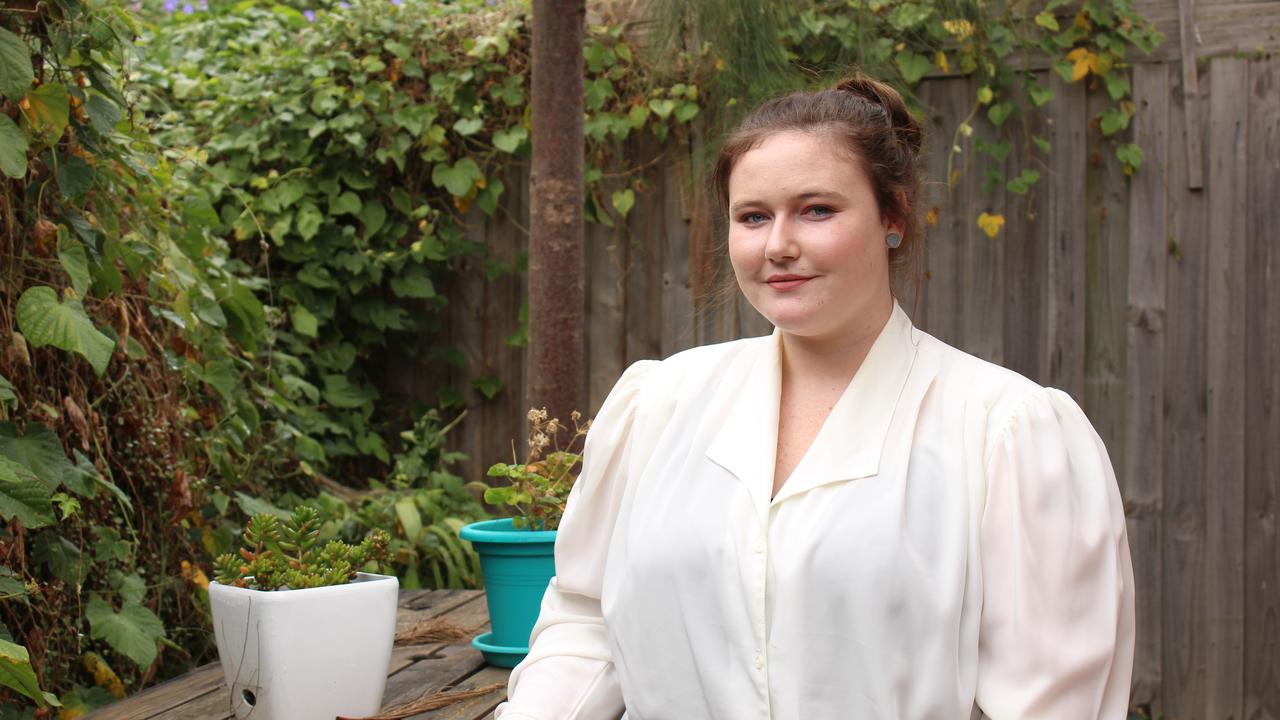
Much of her time is spent trawling job websites and Facebook groups where casual vacancies are posted, filling out applications, sitting assessments and hoping for an interview.
“I apply for maybe 40 or 50 jobs a month. I get the odd interview here or there but just can’t get someone to give me a go,” she said.
“I don’t think people want to hire 22-year-olds for a job that they can pay a 16-year-old to do for much less.
“I’ve had bits and pieces of work over the past few years but not much. I might get waitressing for a few hours a week here or there. It’s hard to find a stable job that pays enough to survive.”
Low-skilled work is hard to come by and there’s often strong competition for jobs that don’t have guaranteed hours, meaning an added layer of uncertainty.
Jessica will do “pretty much anything” at this point. She’s open to any kind of paid work in whatever industry will take her.
“But transport is the big thing. You need your own transport to get to a lot of jobs. Trains and buses aren’t always reliable if you need to start early or finish late. The buses aren’t running.
“How do you get home late at night from work? I can’t afford a cab. Do I walk home at 11pm or midnight, on my own in the dark?”
And there’s simply not enough work to go around, with Australian Bureau of Statistics data showing there’s just one vacancy on average for every eight jobseekers.
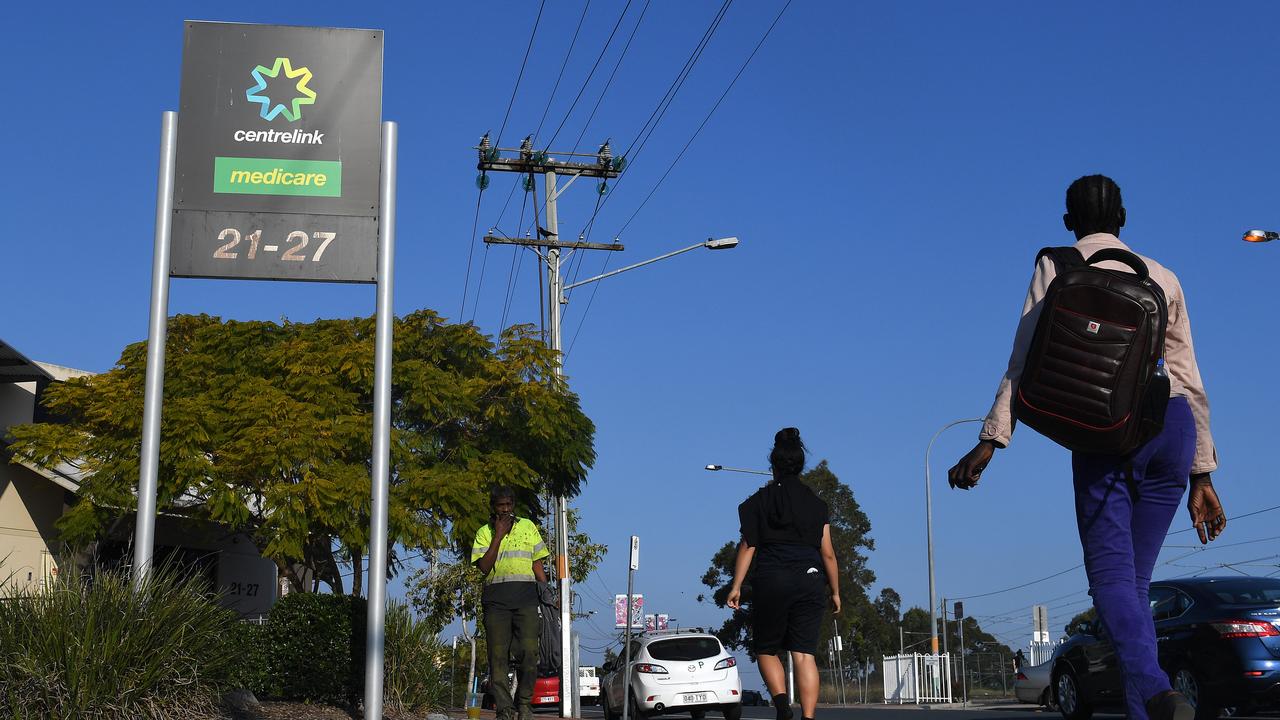
While our unemployment is low, experts say Australia is in the grips of an underemployment crisis, where people have to multiple casual or part-time jobs to make ends meet.
The unemployment benefit Newstart, which up to 800,000 people receive, effectively hasn’t increased for more than 20 years but during that time, the cost of living has soared and anyone who needs welfare is likely to struggle just to survive.
Conny Lenneberg, the executive director of the charity the Brotherhood of St Laurence, which runs the Share the Pie campaign to increase Newstart, said most people cope by eating less.
“People have no choice but to do without,” Ms Lenneberg said.
“They’re increasingly leaning on the charitable sector for support. We’ve seen a growth in the number of food banks over the past decade. We’ve seen increasing reliability on homelessness and housing support services. We’re seeing worsening mental health.
“It’s just not acceptable for one of the wealthiest countries in the world to ignore a very broadbased recognition that Newstart is set at a level that’s not sufficient.”
Community groups and even the business community are now calling for the government to urgently lift the payments.
Even former Prime Minister John Howard said the amount is inadequate and should be increased.
ON THE POVERTY LINE
Research from the University of Melbourne in 2017 calculated how much income a family needs to achieve a decent standard of living.
It found that for a single adult on Newstart, they were likely to come up short by $96 per week, while a couple with two children would be $126.24 in the red.
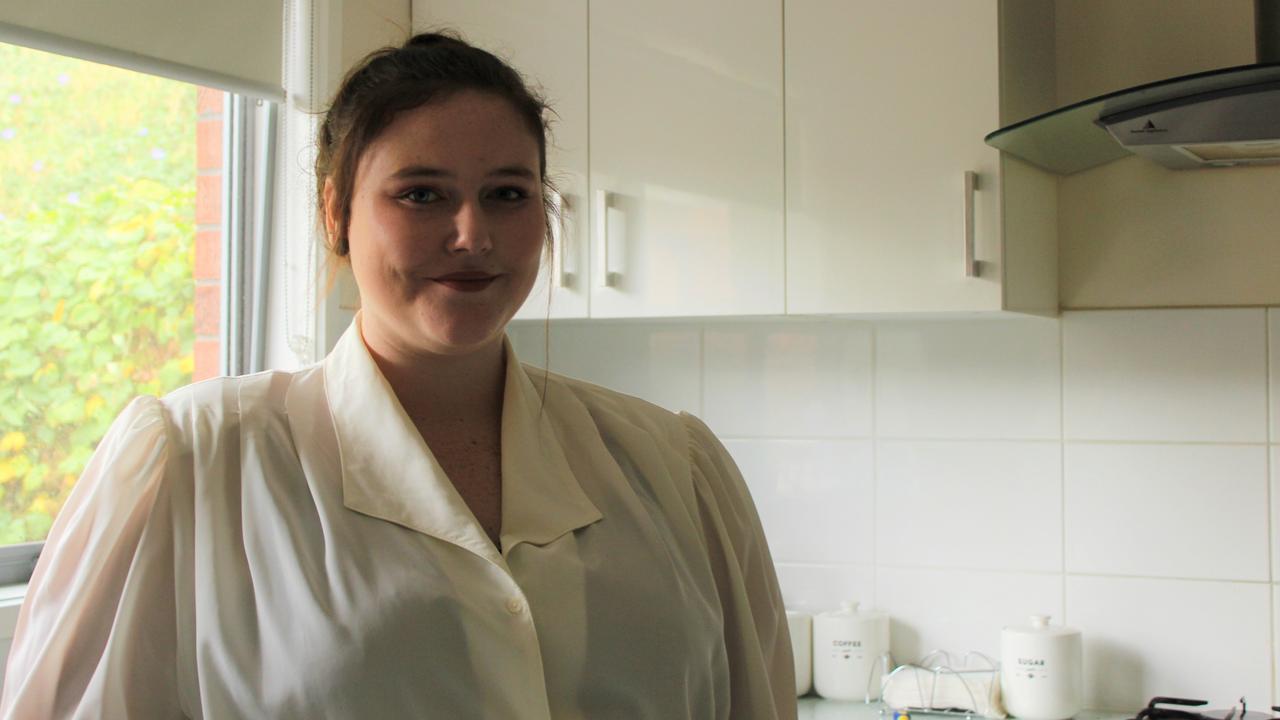
A University of New South Wales study of Australians in debt found that welfare recipients were significantly more at risk of falling into crippling financial hardship.
Of those receiving Centrelink benefits, 62 per cent were burdened by paying for basic living expenses like food and utility bills.
The UNSW research found that most people try to cope with financial hardship by slashing their spending on food, medical care and transport.
When Jessica faces an unexpected expense, she usually reduces her grocery budget or foregoes topping up her prepaid mobile phone credit, she said.
“I just have to go without,” she said.
For Centrelink recipients, they were considerably more likely to cut back on essentials like energy, water and gas, as well as food, the UNSW study found.
RELATED: Stay up to date with what matters on our federal election page
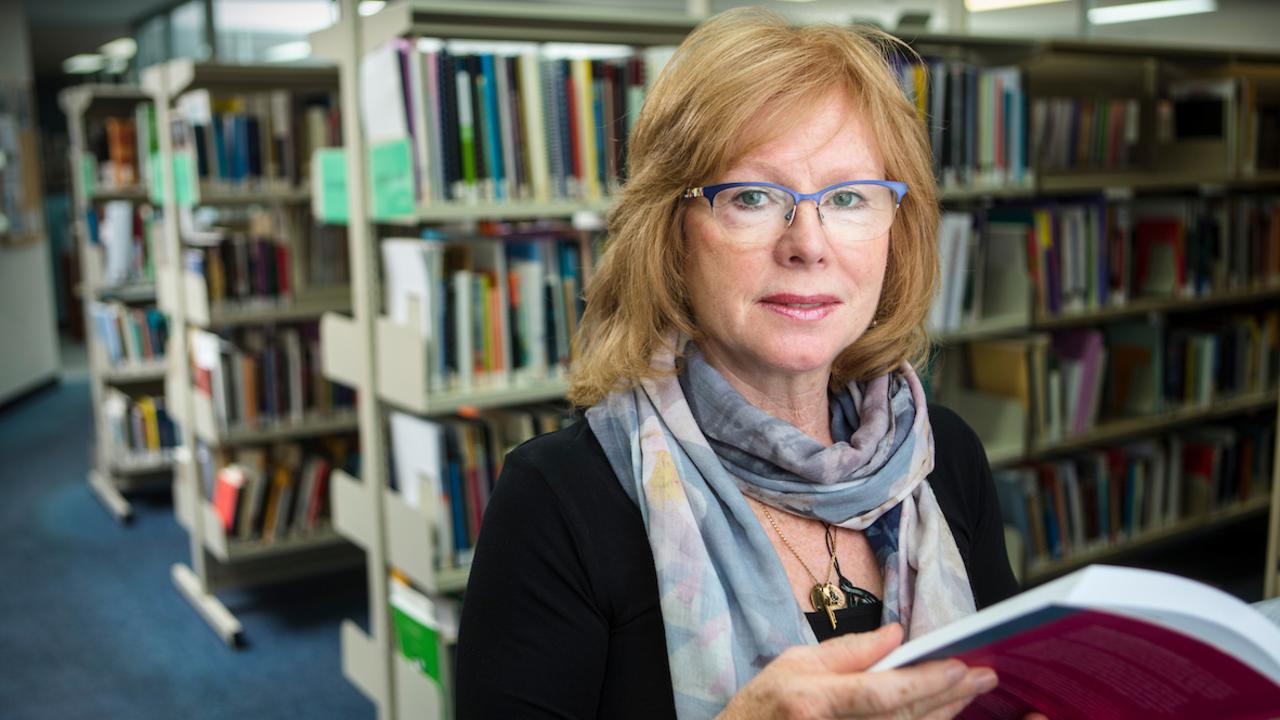
It’s almost a decade since the Organisation for Economic Cooperation and Development raised concerns about the adequacy of Australia’s unemployment benefit.
In 2010, the OECD said Newstart was insufficient to live on and insufficient to support people to find work.
It mirrors an Australian Council of Social Services report that found a “disturbing growth in long-term unemployment”, with 64 per cent of people on Newstart receiving it for longer than a year.
That’s not because people are unwilling to take steps to get off it, ACOSS chief executive Cassandra Goldie said, but due to the result of “longstanding policy failure”.
“There’s a growing mismatch between people’s skills and what employers need, discrimination, including against older workers, and a lack of investment by governments in quality employment services,” Dr Goldie said.
“A majority of people on Newstart are being systemically excluded from paid employment.”
Jessica said the pressures of financial hardship impacted her ability to look for suitable and stable work.
“With a bit of extra money, I could put it towards saving for a car to get to a job, or studying to build up my skills,” she said.
“Not having the financial support to just make ends meet, it affects everything in my life.”
It’s not as simple as lining up an interview, she said, but also ensuring she had enough money to get there and back again.
RELATED: Political candidates drop like flies in week of scandal
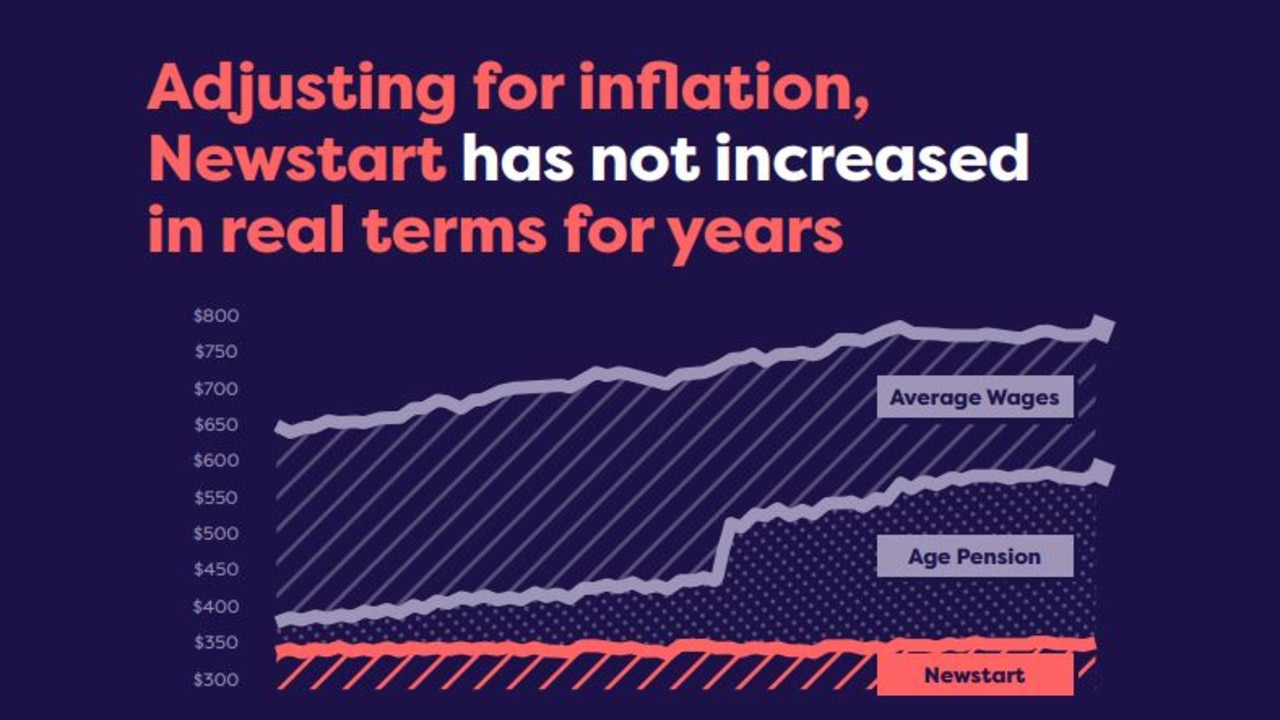
Newstart is indexed to inflation, which remains historically low, rather than a measure of the true and current cost of living.
Successive governments have also slashed allowances that support certain groups on Newstart, including single parents.
RECIPIENTS CONSTANTLY DEMONISED
Government policies, from programs to claw back overpayments to the trial of a “welfare card” that restricts how money is spent, serve to stigmatise Newstart recipients, Australian National University professor Peter Whiteford said.
The perception of people on the dole, milking it for years with little-to-no interest in moving to employment, is at stark odds with reality, Professor Whiteford said.
“Only 1 per cent of working-age households receive the bulk of their income from (welfare) benefits for 10 years or more,” he wrote in an article for The Conversation.
“These were people with deep and persistent disadvantage. They were highly likely to be indigenous Australians or people living in areas with limited job opportunities, or people with longstanding disabilities or educational disadvantage.”
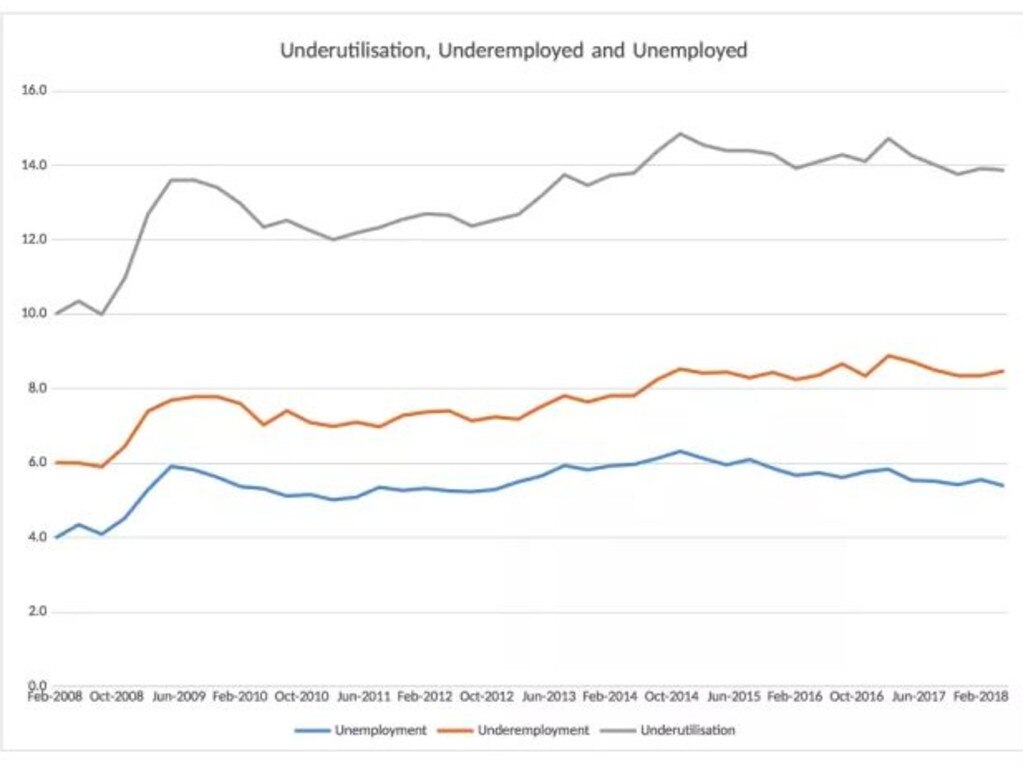
Ms Lenneberg said there’s simply no money for people to “bludge off”.
“Imagine the shame of not being able to dress yourself, to go to the hairdresser, so you can turn up to a job interview feeling your best,” she said.
“To know that you might not be able to afford public transport to get to the interview … it’s an erosion of your sense of belonging.
“There seems to be this assumption that because unemployment is so low, there must be jobs out there for people if only they tried hard enough.
“We know that the nature of working is changing. People are working insecure jobs where they don’t know from week to week how much they’ll earn.”
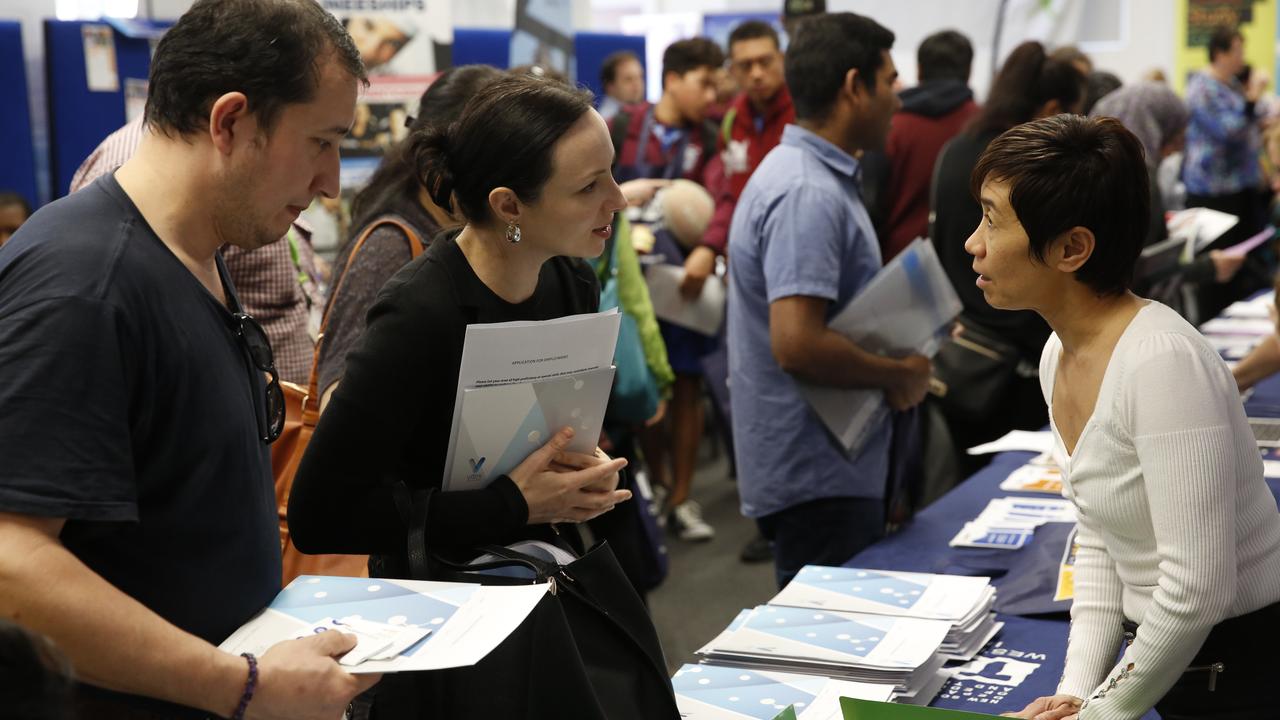
Jessica wants to better herself and to be a productive member of society.
She hopes to begin a Certificate III in Pathology at TAFE later this year, to put her on the path to achieving her long-term goal of becoming a registered nurse.
“I hate the phrase ‘dole bludger’. I absolutely hate it. It makes me sad to even think about people viewing me like that,” Jessica said.
“I don’t enjoy this life. I don’t get money for nothing. I’m applying for jobs but there aren’t enough out there, or not enough hours and pay.”
A new survey last month found nearly three-quarters of Australians believe Newstart should be increased, believing the current amount was unfair.
It shows that campaigns like those run by the Brotherhood of St Laurence are cutting through.
Labor has committed to a review of the welfare system, which Ms Lenneberg said was encouraging, but urgent action was critical.
And it’s time to stop making Newstart a political football, she added.
“The Brotherhood of St Laurence is saying that we need to get Newstart out of the political sphere and have an independent statutory authority that determines the appropriate level for different benefits,” Ms Lenneberg said.
